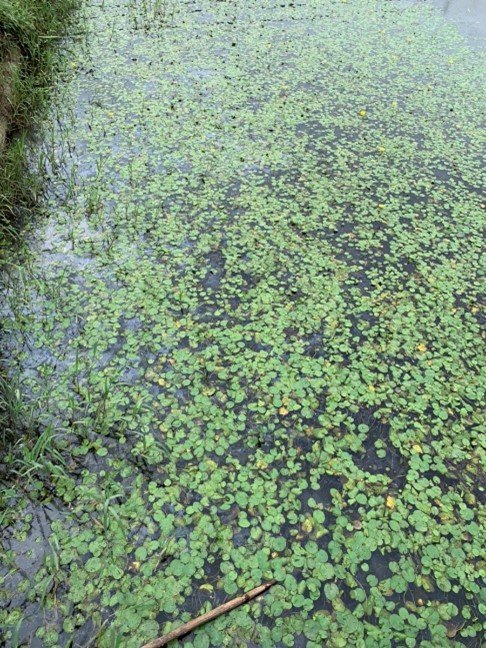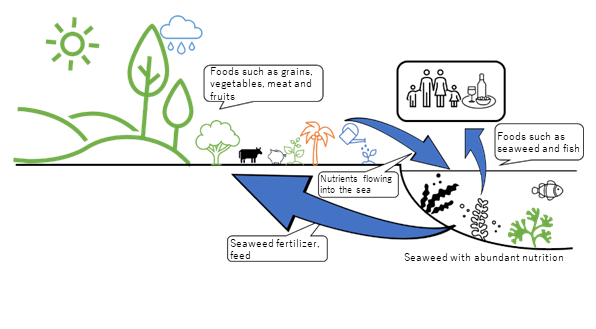ACTIVITYActivity reports
- HOME
- Activity reports
- Report on Completion of Internship at WISE Program Partner Institute IDEA Consultants, Inc. (HIRAGA, Course of Power System Engineering)
Report on Completion of Internship at WISE Program Partner Institute IDEA Consultants, Inc.
(HIRAGA, Course of Power System Engineering)
Although it was only for a short period of one week, I recently participated in an internship at IDEA Consultants, Inc.
The theme was "Toward solving environmental problems!"
This may sound like a rather pedestrian theme, but how exactly are we addressing such problems?
Saving power? Switching to LED lights? Driving a green vehicle? These are all great activities. For my part, I want to also say that I don't take elevators as much as possible; alas, I do take them sometimes.
However, these are not the only solutions to environmental problems. We are now in a situation that demands that we think about our food choices.
Why? Because the world's nitrogen is being discharged into Japan!
Before going into what that means, we must check some facts.
Have you ever wondered where your food comes from?
It's generally known that Japan's food self-sufficiency rate is less than 40%, and I imagine that many people have a sense that many food products are imported. Foodstuffs that can be purchased in Japan are cheap, and products such as canned food state that they are from places like Thailand, Vietnam, etc. Most flour is imported. Many of these foods consist of nitrogen components. Nitrogen is food for microorganisms and plankton.
Problems caused by this include huge outbreaks of red tide and blue tide due to overnutrition in the ocean. (There are also large outbreaks of aquatic plants in lakes and marshes.)

This is a large outbreak of moss on a lake, which causes poor water movement and will eventually result in a lake with a foul smell.
Outbreaks like this deprive the fish in coastal areas of oxygen, and cause shellfish and seaweed to die out.
As a result, many fish evacuate to the open sea.
As someone who only thought about exhaust gas and air pollution, I was astonished by this... We all eat, go to the toilet, and after the sewage is cleaned, it eventually goes to the sea.
That's right: in the end, everything ends up in the ocean!
I was living without knowing about this flow. I would like to thank IDEA Consultants for making me aware of this fact. So what about vegetables? Vegetables are difficult to keep fresh, so they are often produced locally! Do you really think they're from Japan?
They are certainly produced in Japan. But what about the fertilizer? When I looked into it, 60% [of farmers in Japan] purchase nitrogen fertilizers [that come] from overseas. The reason is simple. Nitrogen fertilizers are made from crude oil.
Even though a food product is grown in Japan, if we don't think all the way to the choice of fertilizer, we end up polluting the seas around Japan.
So, in my internship, we took the approach of "Solving environmental problems through local production for local consumption and a recycling-oriented society!"
If you think about it well, you can see that Japan only throws nitrogen away into the sea but doesn't collect any from the sea. What does collection mean? It means, for example, to take and eat seafood from coastal areas such as wakame and kombu (two edible species of seaweed), sea urchin, sazae (a species of sea snail), and abalone. This forms a cycle, the ideal of which is shown in the following figure.
 Circulation between sea and land (reprint prohibited)
Circulation between sea and land (reprint prohibited)
It is ideal to bring nitrogen that has flown into the sea onto land to nourish humans, mountains, forests, vegetables, etc. on land, and then return it to the sea again.
By doing so, natural "equilibrium and circulation" is maintained, and abnormal outbreaks of things like plankton can be suppressed.
I had deep discussions with IDEA Consultants about solutions for this.
However, the reality is that solutions don't grow on trees; that would be too easy. From here on, you yourself can participate in an internship and experience this. Through the internship, I realized the tendency of optimistic thinking in my own research.
In the future, I will do my best to become a person who can take responsibility for Japan!
That's the end of my internship report.
HIRAGA, 2nd year student, Course of Power System Engineering

